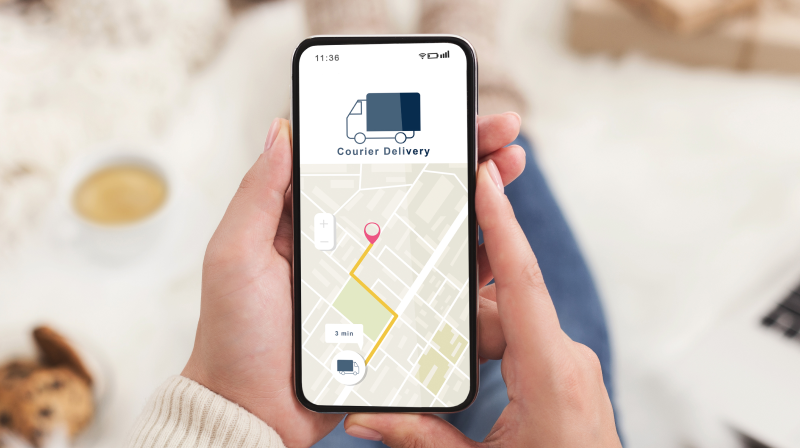The e-commerce industry has transformed customer expectations, with faster deliveries and seamless service becoming the norm. Businesses now face immense pressure to deliver not just speed but also accuracy and transparency in their operations.
The increasing demand for same-day delivery, coupled with the complexities of ecommerce delivery management, makes efficient logistics crucial. To address these challenges, businesses must adopt real-time logistics tracking software, which offers a unified platform for managing deliveries, optimizing routes, and ensuring transparency.
By integrating this software with tools like order management software and inventory management systems, businesses can overcome logistical hurdles and enhance customer satisfaction.
4 Challenges in E-Commerce Deliveries
E-commerce businesses encounter several logistical challenges that can hinder growth and customer retention:
1. Managing High Order Volumes
With millions of orders placed daily, managing fulfillment operations efficiently becomes a daunting task. Without the right systems, businesses struggle to meet tight delivery timelines, especially during peak seasons.
2. Complex Last-Mile Delivery
The last-mile delivery phase is the most critical and resource-intensive part of the supply chain. Issues like traffic congestion, inaccurate addresses, and delivery rescheduling often lead to delays and increased costs.
3. Rising Customer Expectations
Customers expect real-time updates, accurate ETAs, and fast deliveries. Failing to provide last-mile delivery tracking or timely updates can erode trust and lead to a poor customer experience.
4. Cost Pressures
Meeting the demand for same-day delivery requires efficient delivery route optimization and resource allocation. Inefficiencies in these areas lead to skyrocketing operational costs, impacting profitability.
Without advanced tools like delivery management software, businesses risk losing their competitive edge.
How Real-Time Logistics Tracking Software Solves These Challenges
Real-time logistics tracking software revolutionizes e-commerce logistics by integrating advanced features and delivering actionable insights. Here’s how it helps businesses address key challenges:
1. Enhanced Real-Time Visibility
Businesses gain live updates on fleet locations, delivery statuses, and potential delays. This visibility allows to take proactive actions to ensure timely deliveries, reducing customer dissatisfaction.
2. Seamless Integration with Existing System
The software integrates effortlessly with Last Mile TMS software, order management software, and inventory management systems. This integration ensures smooth workflows from order placement to delivery.
3. Improved Customer Communication
Real-time updates enable businesses to provide accurate ETAs and keep customers informed at every stage of their order journey. This transparency enhances trust and loyalty.
4. Predictive Analytics for Proactive Decisions
The software uses predictive analytics to identify potential bottlenecks in delivery operations. By addressing these issues early, businesses can maintain delivery timelines and reduce operational risks.
5 Key Features of Real-Time Logistics Tracking Software
The success of e-commerce delivery management relies heavily on the advanced features of real-time logistics tracking software:
1. Delivery Route Optimization
Efficient route optimization software considers variables like traffic, weather, and delivery windows to create optimized routes. This reduces travel time, fuel consumption, and costs while ensuring timely deliveries.
2. Last-Mile Delivery Tracking
The software offers end-to-end visibility into the last-mile delivery process, enabling businesses to monitor shipments and resolve issues quickly.
3. Order Lifecycle Management
By integrating with order management software, businesses can track orders from placement to delivery. This ensures transparency and reduces errors.
4. Dynamic Route Planning
AI-driven route planning adjusts delivery schedules dynamically, ensuring minimal disruptions and optimal performance.
5. Integration with Inventory Systems
Seamless integration with inventory management systems ensures stock availability, accurate picking and packing, and reduced delays caused by inventory mismatches.
5 Strategic Benefits for E-Commerce Businesses
Adopting real-time logistics tracking software unlocks significant benefits for e-commerce businesses:
1. Boosted Operational Efficiency
Automating processes like delivery route optimization reduces manual errors, accelerates workflows, and ensures consistent performance.
2. Reduced Delivery Costs
Efficient route planning minimizes unnecessary mileage and fuel consumption, directly impacting operational costs.
3. Scalable Logistics
The software enables businesses to scale operations effortlessly during peak seasons, ensuring they handle increased demand without compromising quality.
4. Enhanced Customer Experience
With real-time location tracking and accurate ETAs, businesses deliver a superior customer experience, leading to increased loyalty and repeat purchases.
5. Improved Decision-Making
Actionable insights from Last Mile TMS software help to make decisions, optimize resources, and adapt to changing market conditions.
How nuVizz Transforms E-Commerce Logistics
nuVizz provides cutting-edge logistics solutions tailored to the needs of e-commerce businesses. Here’s how nuVizz empowers businesses:
AI-Powered Delivery Route Optimization:
nuVizz uses advanced route optimization software to minimize delivery times and costs.
Integrated Ecosystem:
Its Last Mile TMS software integrates with order management software and inventory management systems, streamlining workflows.
Real-Time Dashboards:
Businesses track deliveries through intuitive dashboards, ensuring transparency and accountability.
Scalable Solutions:
nuVizz adapts to the growing demands of businesses, enabling them to handle high volumes efficiently.
Case Study: How nuVizz Helped an E-Commerce Giant Achieve Seamless Deliveries
The Challenge
An e-commerce business struggled with rising order volumes, inefficient delivery route optimization, and limited real-time location tracking. These issues led to delays, higher costs, and customer dissatisfaction.
The Solution
The company partnered with nuVizz, which provided:
Dynamic Route Optimization:
nuVizz’s route optimization software adjusted routes based on real-time conditions.
Real-Time Visibility:
The company tracked deliveries through last-mile delivery tracking, ensuring timely updates for customers.
Seamless Integration:
nuVizz integrated its solution with the company’s order management software and inventory systems.
Proactive Issue Resolution:
The software detected potential delays early, allowing the company to resolve them before they escalated.
The Results
The company experienced:
- A 35% reduction in delivery costs through optimized routes.
- A 50% increase in on-time deliveries, ensuring customer satisfaction.
- A 40% decrease in customer complaints due to real-time updates.
- The ability to scale operations effectively during peak seasons.
The Future of E-Commerce Logistics
The future of e-commerce logistics depends on advanced tools like AI-powered route optimization software, autonomous vehicles, and drones. Businesses that invest in real-time logistics tracking software will stay ahead by delivering faster, more reliable services.
E-commerce businesses must adopt innovative solutions to meet modern delivery challenges. Real-time logistics tracking software enables businesses to enhance their operations, reduce costs, and deliver exceptional customer experiences. With nuVizz’s solutions, businesses can achieve scalable, efficient, and transparent delivery processes.

